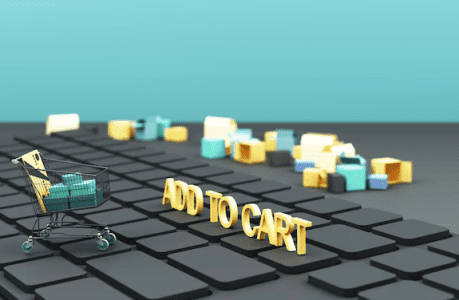How Inbound Marketing Strategies Supercharge Sales Success

In the dynamic landscape of modern business, consumer preferences and behaviors evolve rapidly. The unification of sales and marketing has never been more crucial.
According to the U.S. Chamber of Commerce, sales and marketing are conventionally seen as separate activities. Marketing’s goal is to raise awareness of a company’s products and services. Sales, on the other hand, seek to convert that awareness into a purchase.
They do, however, share the same goal: to attract new clients. Inbound marketing, a customer-centric approach that prioritizes value-driven engagement, has emerged as a potent catalyst for elevating sales success. Unlike traditional methods that interrupt and push, inbound marketing pulls in prospects organically through relevant content, building trust and rapport.
In this article, we discuss the transformative power of inbound marketing strategies. We will also take a look at how inbound marketing can propel sales to new heights.
Building Meaningful Connections
Inbound marketing promotes authentic connections with leads by offering tailored content that addresses their pain points and queries. Such personalized interactions lay the foundation for nurturing relationships based on trust, making lead conversion more likely.
By engaging in conversations that resonate with their needs, businesses can establish an emotional connection. This leads to increased customer retention and word-of-mouth marketing.
Attracting High-Quality Leads
Attracting prospects who have a genuine interest in your offerings is one of the cornerstones of inbound marketing. Businesses can generate high-quality leads by developing intriguing content that is tailored for social media and search engines.
As a result, the sales staff has more qualified prospects to interact with. This approach boosts the efficiency of the sales process while enhancing the overall customer experience.
MarketingProfs notes in a blog post that consistent customer experiences enhance loyalty. According to one study, 83% of customers are more loyal to companies that provide consistent customer experiences across departments. Furthermore, 94% believe they are more likely to buy from a company that offers a pleasant customer experience.
Lead Nurturing And Conversion
Inbound marketing employs automated workflows to nurture leads through their buying journey. By providing relevant content at each stage, businesses guide leads toward conversion.
This ensures that when they’re ready to make a purchase, the brand is top-of-mind. This nurturing process involves delivering a mix of educational content, personalized recommendations, and targeted offers. The HubSpot partner program is a popular choice for businesses looking to implement such strategies.
Utilizing The HubSpot Partner Program
HubSpot, a leading inbound marketing and sales platform, offers a suite of useful tools for businesses. Their HubSpot partner program empowers businesses with precise lead conversion through compelling landing pages, forms, targeted emails, and automated workflows.
Connection Model highlights that working with a HubSpot-certified partner provides access to industry expertise. By leveraging the power of HubSpot, partners collaborate with businesses to create compelling content and optimize lead-capture processes.
Aligning Marketing And Sales
Inbound marketing promotes collaboration between marketing and sales teams. Shared insights into lead behavior and preferences enable sales reps to approach prospects with personalized information, increasing conversion chances.
By fostering open communication and alignment between these two departments, businesses can streamline processes and reduce friction. This ensures a consistent and cohesive customer journey from the initial touchpoint to the sale.
Shortening Sales Cycles
Inbound strategies speed up sales cycles by providing leads with the information they need when they need it. Educated and informed leads are more decisive, reducing the time it takes for them to move from consideration to purchase.
According to a Forbes article, businesses that use effective lead nurturing strategies get 50% more high-intent prospects. This eventually shortens the sales cycle by providing a way for a lead to go through the sales funnel.
Moreover, by addressing common objections and concerns proactively through informative content, businesses can eliminate sales roadblocks. This accelerates the decision-making process and positively impacts the bottom line.
Showcasing Thought Leadership
Consistently creating and sharing valuable content positions a brand as a thought leader in its industry. This authority enhances a brand’s credibility, instilling confidence in potential buyers and making conversion more likely.
By offering insights, best practices, and innovative perspectives, businesses attract the attention of prospects. At the same time, they establish themselves as go-to resources for industry-related information. This creates a sense of community and trust.
Tracking And Iterating
Inbound marketing provides rich analytics that tracks the performance of various campaigns and content pieces. This data-driven approach allows businesses to identify what’s working and what needs improvement, enabling continuous refinement of strategies. This allows for better sales outcomes.
Businesses can make educated adjustments by regularly monitoring important indicators like conversion rates, engagement rates, and customer feedback. They can optimize their tactics to align with evolving customer preferences and market trends, ultimately driving greater sales success.
Final Thoughts
In the modern business scene, the unification of marketing and sales through inbound strategies has helped with customer engagement. Inbound marketing thrives on meaningful connections, attracting valuable leads, and nurturing them through tailored content.
HubSpot’s partnership program further amplifies conversion potential. This aligns marketing and sales efforts, shortening sales cycles by addressing objections proactively. The spotlight on thought leadership enhances brand credibility, while data-driven refinement ensures adaptive strategies.
Ultimately, embracing inbound methodologies cultivates customer trust, streamlines processes, and propels sales success through a customer-centric, value-driven approach.
Read Also:


























Leave A Reply